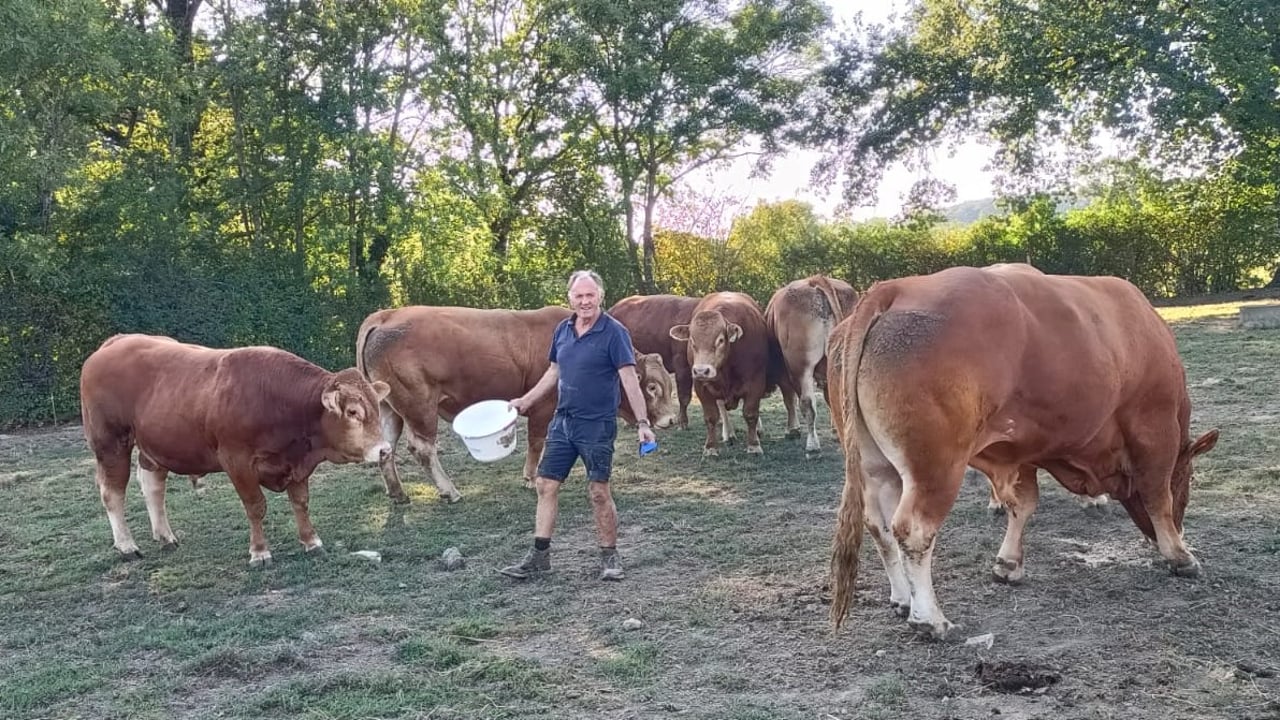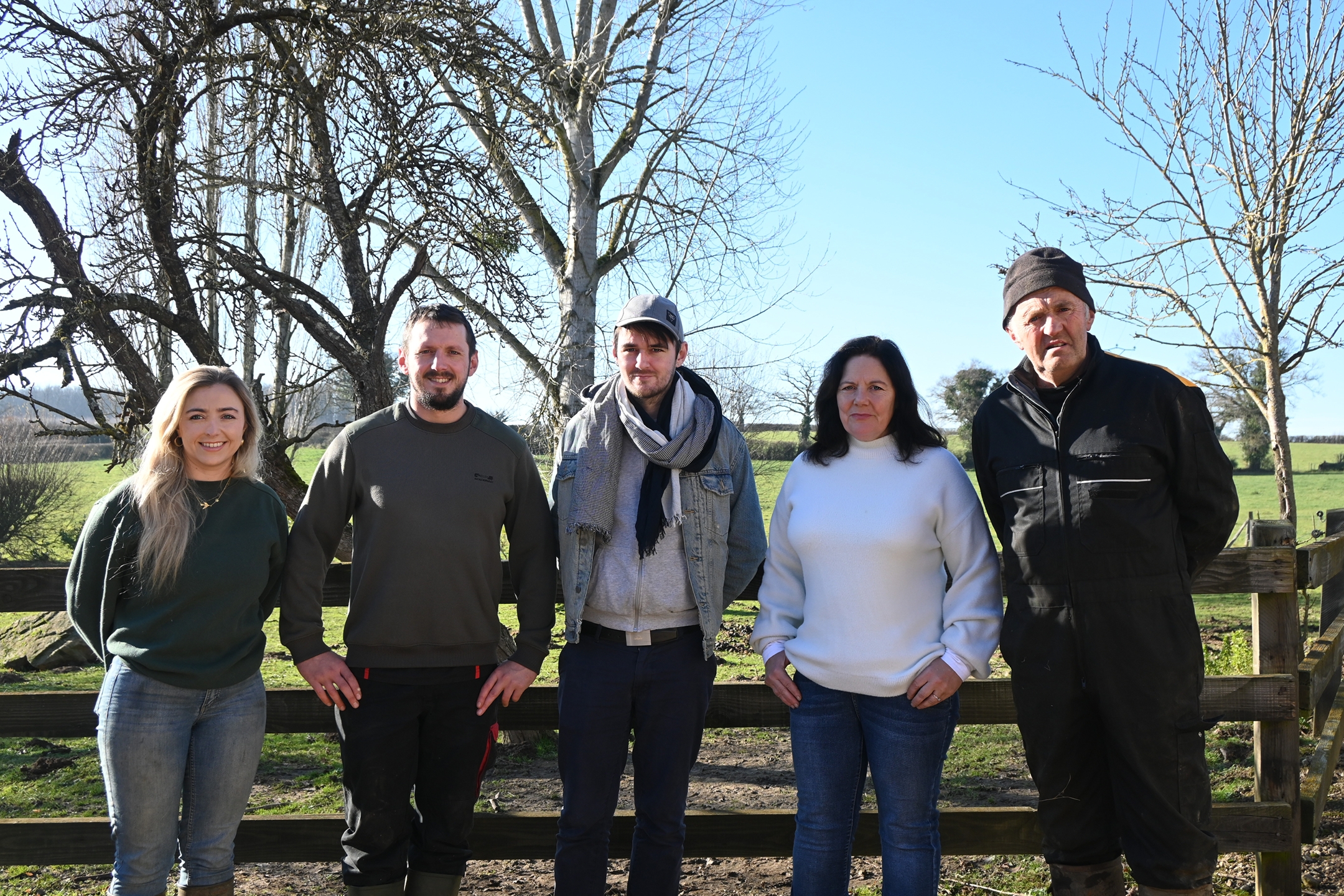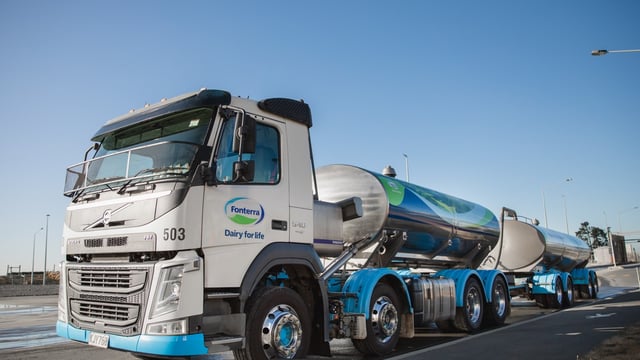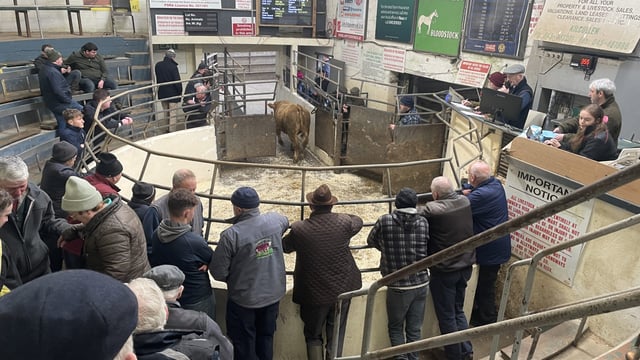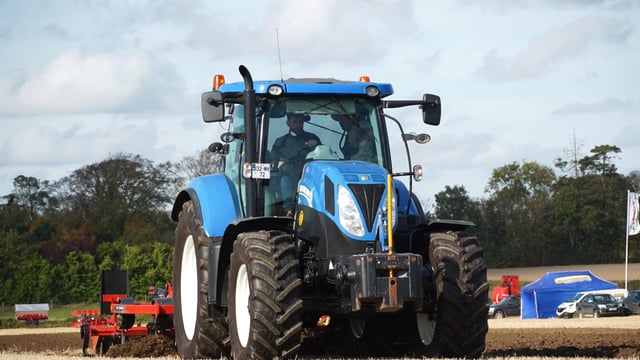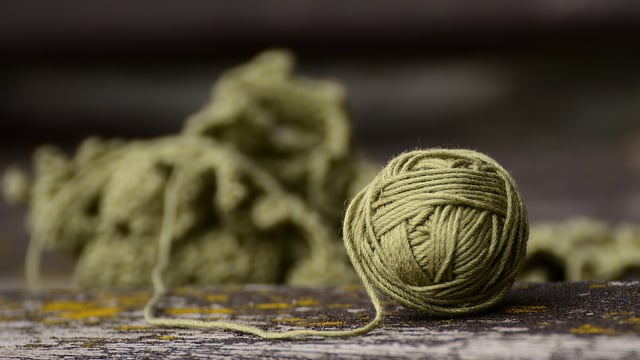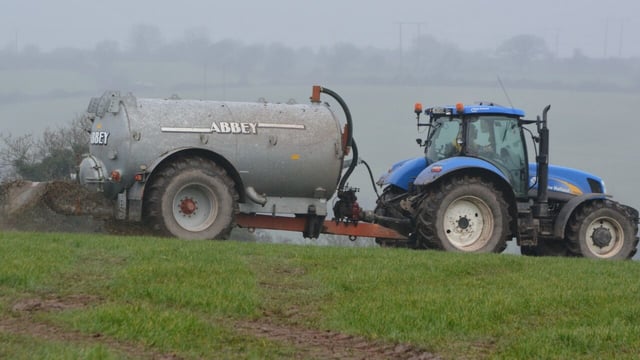Galway family describe France as 'paradise' for farming
An Irish family who have been farming in rural France for the last 19 years have described the country as a "paradise" for farming.
Declan and Emily Gardiner traded their respective mining and office jobs in Galway for a 300ac farm in the Limousin region of France in 2006, moving their three young children with them.
The family had been holidaying in France for several years prior to their eventual move, and had been considering the prospect of emigrating for some time, after becoming enamoured with the weather and the high quality of life on offer there.
It wasn't until they started looking at the price of agricultural land on sale in France, valued at an average of €2,500ha, significantly lower than the equivalent in Ireland at the time, that the family concluded that a permanent move was "a no-brainer".
Declan also cited the favourable economic situation during the Celtic Tiger era in Ireland, as a push factor behind their relocation to France in 2006.
It reportedly enabled the couple to sell their house and adjoining 9ac of land in Eyrecourt, Co. Galway, in return for the purchase of a 300ac, working tillage and beef farm in France with machinery and cattle included.
Government support in France
The price of agricultural land in France is heavily controlled by the Land Development and Rural Establishment Society, an agency established under the auspices of the Ministry of Agriculture and the Ministry of Finance.
The agency governs the sale of all farmland in France, preventing price gouging and the sale of valuable land zoned for agricultural purposes to property and commercial developers.
It also ensures neighbouring farmers and young farmers get first preference rights before the land goes on general sale, while they can even purchase the land on behalf of a young farmer, leasing it to the individuals until they are in the position to buy it outright.
In addition to the price controls in place, the French government also offers generous grants to subsidise the sale of land to new entrees into the agriculture industry.
This has encouraged a lot of foreign investment from expatriates, like the Gardiners, who are among a growing community of foreigners farming in France at present.
The Gardiners used Eurofarms, an agency designed to help prospective farmers relocate to other European countries, who assisted them during their property search.
"We used an agent from Eurofarms, who we contacted and arranged a visit with in May 2006. During our first visit with him, we found this farm and by October, we were moved in," Declan said.
"The previous farmer only left the day before we arrived because he had to look after the cattle up until we turned up to take over."
Declan was an accustomed suckler farming, having previously kept Charolais cattle while he was employed as a fitter in the mines in Galway, but he admitted he had to learn tillage farming from scratch, which came with its own set of challenges.
"I was used to cattle but I wasn't used to cereals, so I was never as relieved as when I first saw the corn coming out of the ground," he said.
"I had never ploughed in my life and I didn't know what I was going to root up. The second day I went ploughing, I ploughed up the main water pipe between the two villages, and we were up until 3:00a.m in the morning trying to fix it."
Types of farming
France is home to a myriad of different farming practices, which tend to be concentrated in specific regions.
The north is primarily focused on dairy, the west on sheep, the south on lavender and wine production, the centre on tillage, and the east on beef.
This also extends to breeds of cattle farmed, of which there are many in France, with native breeds typically found to be predominant in the areas from which they originate or share a namesake with.
According to Declan, there is also "no such thing as part-time farmers" in France, as farming is a more viable industry than it is in Ireland, with most farmers and their spouses employed on a full-time basis.
"A lot of farmers over here wouldn't even have as much as an overdraft," Declan said.
For big machinery purchases, it is common practice for four to five neighbouring farmers to band together, under the auspices of the aforementioned government agency, and collectively purchase the unit to share among the group.
The French agriculture industry also maintains a more equitable gender balance than its Irish equivalent, with Emily agreeing that you "are just as likely to see women out driving tractors, pulling ploughs, and cutting silage" as you would men.
Declan maintained that farming, in general, tends to be a lot more relaxed in France, due to the absence of the pressures that come with working around temperamental weather patterns, which are uniquely distinct to Irish farming life.
There are also excellent supports in place from the Chamber of Agriculture, the French equivalent to Teagasc, whom the Gardiners said, continuously host free courses for farmers interested in upskilling, with a tax incentive to be earned from attending.
"It [the Chamber of Agriculture] is always organizing courses for farmers, such as welding courses, how to handle cattle, and how to do your own veterinary stuff with cattle," Declain explained.
"It will also give you money to bring the kids on holidays, to try and encourage farmers to take breaks away from the farm."
While the Gardiners' two eldest boys have since flown the nest, their youngest, Laura, now in her early 20s, runs an agricultural social media marketing business from the farm, called Agsocials.
In addition to this, Laura documents the family's experience in France on YouTube, via the channel, 'Farming Life at la Forge'.
While on the topic of differences, the Gardiners concluded that Irish farmers could learn a thing or two from their French counterparts, when it came to protesting.
"Protesting in France is a bit like a national sport. The government take farmers seriously, they know if they throw something at them, French farmers will throw it right back into their faces," Emily said.
"I was in a shop once and there was this old lady, destroying all the magazines with pictures of Macron on the covers.
"Right now, on account of the Mercosur deal, they [farmers] are going around emptying out supermarkets of foreign produce. They're coming out with shopping trolleys full of exported beef and they're donating it to charities in need," she added.
Since moving to France 19 years earlier, the family's farm has prospered and expanded to include over 1000ac of 'prime' agricultural land, with the Gardiners reporting little desire to return to Irish shores any time soon.
"We're here nearly 19 years now and I wouldn't take one of them for granted. I just love it," Declan contributed.

